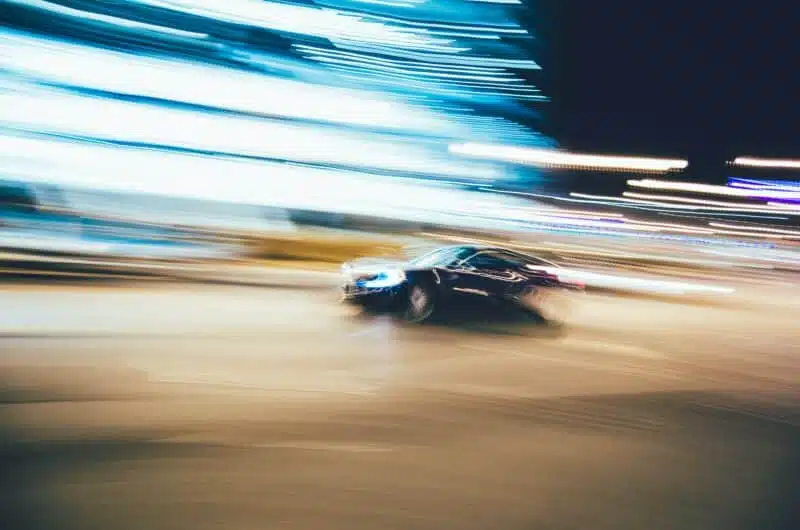On 14 March this year, new regulations will come into force allowing for the confiscation of vehicles of drunken drivers.
Drunk driving can result in loss of vehicle
Currently, for driving under the influence of alcohol (from 0.2 to 0.5 per mille of alcohol in blood) a fine of at least 2500 PLN is imposed. For levels above 0.5 per mille, drivers can pay from 5,000 to 60,000 PLN. In both cases, 15 penalty points are also awarded – the maximum possible for a single incident.
Starting on 14 March 2024, an amendment to the Penal Code will come into effect, allowing for the confiscation of vehicles of drivers with more than 1.5 per mille of alcohol in their blood. According to the new regulations, those who cause an accident after consuming alcoholic beverages (from 0.5 to 1 per mille, above this value confiscation is obligatory), will also lose their vehicles.
If a drunk driver with a sufficiently high blood alcohol level is stopped, the police will detain his vehicle for seven days. During this period, the prosecutor will make an initial decision about securing the car (or other vehicle), after which the court will make its final ruling regarding its forfeiture to the state treasury.
It should be noted that in special cases, the new rules allow courts to impose other penalties:
- If a vehicle is driven by a drunk driver, but does not belong to him, the equivalent value of the vehicle will be forfeited.
- In situations where significant damage occurs to the vehicle, the court will also determine to forfeit its equivalent value.
- If a drunk driver is operating a company vehicle while on professional duty, the car will not be confiscated. Instead, the driver will be fined between 5,000 and 60,000 PLN to benefit the Victim Assistance Fund and Post-Penitentiary Assistance Fund.
– Gabriel Gatner, a lawyer specializing in drunken driving cases and creator of the site jazdapopijaku.pl, comments, “The legislative changes introduced have the potential to reduce the number of tragic accidents caused by drunk drivers. However, to effectively solve this problem, it will be necessary to both enforce these regulations and to continuously educate the public about the consequences of drunk driving.”
The expert adds that drink-driving is a widespread problem.
– 80% of the clients of my law firm are people who drink alcohol occasionally but have gotten behind the wheel, believing they have already digested the alcohol they consumed. Such so-called unaware drunkenness is extremely dangerous for the driver, their passengers, and other road users. It can also have serious legal consequences for the driver – ignorance of one’s state of sobriety is no excuse in court,” Gatner emphasises.
In a survey commissioned by AlcoSense, more than 40% of 1017 polled Polish drivers consider confiscating a car an effective punishment for those who decide to drive drunk.
The rules will not replace the lack of imagination
In 2023, authorities recorded over 90,000 instances of drunk driving. Since 1st January 2024, the police have already detained close to 13,000 drivers under the influence. This may seem like a relatively small number given the total number of drivers in Poland. Yet, the research shows that one in four drivers (27%) after consuming alcohol wondered if they were fit to drive.
The most frequently cited reason (65%) why they decided to drive even without being sure of their sobriety was feeling fine. Those participating in the anonymous survey also pointed to such factors as a lack of other options to return home other than driving their own vehicle (39%) and only having a short distance to travel (28%). Almost one in five respondents (19%) admitted that they hoped to avoid roadside controls and alcohol testing.
Wojciech Pasieczny, former head of the capital’s traffic police and currently working for the Road Accident Prevention Foundation, warns that in Poland there is still not enough personnel for testing the sobriety of road users.
“Of course, it is not possible for a policeman with a breathalyzer to be stationed at every intersection. Unfortunately, there are often no alcohol controls in those times and places where they would be most advisable. The lack of personnel in the uniformed services unfortunately goes hand in hand with a lack of imagination on the part of people who decide to drive a vehicle ‘after a few drinks’. Alcohol impacts a driver’s motor skills, slows reaction time, and impairs vision – both of lights, road signs, and of pedestrians, who are often innocent victims of accidents caused by drunk drivers,” explains Pasieczny.
Everyone should say a definitive “no” to drunk driving
The European Transport Safety Council recognizes driving under the influence of alcohol as one of the four main causes of fatal traffic accidents. Every day an average of 255 people driving under the influence go out onto Polish roads.
“The problem of drunk drivers needs to be addressed in different ways. It is extremely important to have applicable laws – penalties must be both severe and properly enforced. Only in this way will they effectively deter drunk driving. Key is also long-term education aimed at raising public awareness about the scale of the problem and its consequences. Governments, NGOs, media and business representatives should all be involved in these activities. You don’t have to wait for changes in the law – good practices in the workplace can be implemented without signed laws, and you can check the state of your sobriety yourself using a trusted device,” says Dorota Olszewska, chairwoman of the Partnership for Road Safety Association.
